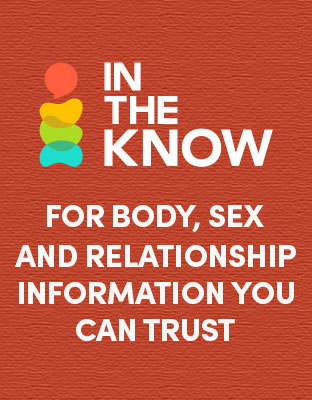|
3 October 2018
The use of testosterone replacement therapy has been increasing in Australia, and around the world, since 2000 and new research from Family Planning NSW suggests older men, living in cities may be accessing the therapy outside recommended guidelines.
Testosterone replacement therapy has been shown to be beneficial for men with extremely low testosterone but there is little evidence that it has benefits for other men who have low testosterone due to ageing.
|
|
25 September 2018
Published in the Australian Journal of General Practice, the research focused on youth in south west and western Sydney. Lead researcher Jessica Botfield said the research clearly showed these young people were worried about being judged by health professionals and said they couldn't talk with family or members of their cultural communities about these issues.
"Migrants, refugees and international students are all at risk of finding it difficult to access sexual and reproductive health services and many fear being judged or having their trust broken by service providers," Ms Botfield said.
|
|
5 July 2018
In 2015 the United Nations, in collaboration with member nations, set an agenda of Sustainable Development Goals (SDGs) which aim to transform the world by calling on governments, business and civil society to meet a framework of 17 goals and 169 targets to improve the lives of people everywhere by 2030.
To stimulate governments charged with implementing the SDGs, countries participate in a process of Voluntary National Review (VNR) so they can critically analyse progress, future priorities and areas of high need for attention.
This document is a Shadow Report to the Australian Government’s VNR presented at the High Level Political Forum, at the UN in New York, July 2018.
|
|
19 January 2018
Older men who use online dating at risk of STIs due to low condom use, new research finds.
New research reveals a worrying trend of older men not using condoms or having up to date knowledge about sexually transmissible infections (STIs), with a leading reproductive and sexual health provider calling for funding for a safe sex campaign targeting older men.
|
|
13 December 2017
Recent reporting about contraceptive use is misleading with extensive evidence showing long-acting reversible contraception (LARC) is safe and effective for most women. Family Planning NSW supports LARC use and strongly encourages women to talk through any concerns they have with experts in reproductive health.
"While LARC is not for everyone, most women find it to be a very safe and effective method of contraception that has other benefits, including reduced menstrual bleeding," said Ms Jodie Duggan, Acting CEO, Family Planning NSW.
|
|
26 September 2017
Women need better access to long acting reversible contraceptive (LARCs) methods to prevent unplanned pregnancy as part of comprehensive health care.
“LARCs provide great contraception that don’t require you to do anything to prevent pregnancy every day or every time that you have sex,” said Dr Deborah Bateson, Medical Director of Family Planning NSW.
|
|
23 August 2017
Family Planning NSW says that marriage equality is a health issue and important for the well-being of LGBTI Australians.
"As a leading health organisation, we support the Yes case in the upcoming postal survey on marriage equality. All Australians should be able to get married to who they choose," says Associate Professor Ann Brassil, CEO of Family Planning NSW.
LGBTI people have poorer health outcomes than the general Australian population. Studies have found that attitudes towards LGBTI people contribute to these poor outcomes. Marriage equality will reduce discrimination which will improve health.
|
|
18 April 2017
New research shows Australian's strongly support our commitment to providing important health services to women in Pacific Island nations. Women in the Pacific region die at up to 10 times the rate of Australian women from cervical canceri and 34 times the rate of Australians when giving birthii.
The research, released today, shows, 89% of Australians believe women in Pacific Island countries should have access to health services such as contraception, cervical cancer screening and family planning and about 70% of Australians believe our foreign aid budget should support Pacific Island countries to provide these services.
|
|
20 March 2017
Family Planning NSW announces the launch of Contraception: An Australian Clinical Practice Handbook, fourth edition, developed in partnership with Family Planning Victoria and True Relationships and Reproductive Health.
Contraception: An Australian Clinical Practice Handbook, fourth edition is an essential resource for all primary care practitioners, featuring 12 chapters on contraception and co-authored by practicing medical experts from across Australia.
|
|
15 March 2017
Access to most contraceptives in Australia requires a prescription from a doctor, and it has been shown that doctors can influence women’s decision-making with respect to contraception. However, little research has documented how women experience their interactions with doctors within the context of a contraceptive consultation. Understanding such experiences may contribute to our knowledge of factors that may influence women’s contraceptive decisions more broadly.
|
|
27 February 2017
 In her Sydney Morning Herald article, Dr Deborah Bateson - Medical Director of Family Planning NSW - weighs in on the imminent changes to the National Cervical Screening Program. In her Sydney Morning Herald article, Dr Deborah Bateson - Medical Director of Family Planning NSW - weighs in on the imminent changes to the National Cervical Screening Program.
|
|
7 December 2016
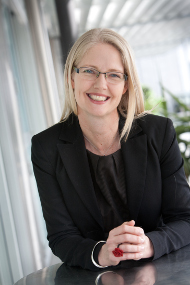 How much do men really know about contraception? Family Planning NSW's Dr Mary Stewart talks male and female contraception including Long Acting Reversible Contraception (LARC) in The Sydney Morning Herald How much do men really know about contraception? Family Planning NSW's Dr Mary Stewart talks male and female contraception including Long Acting Reversible Contraception (LARC) in The Sydney Morning Herald
|
|
24 November 2016
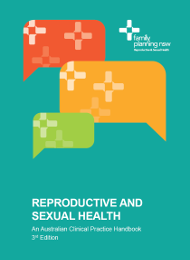 Reproductive and Sexual Health: An Australian Clinical Practice Handbook - Family Planning NSW’s highly anticipated updated edition is published.Family Planning NSW announces the launch of Reproductive and Sexual Health: An Australian Clinical Practice Handbook, third edition. Reproductive and Sexual Health: An Australian Clinical Practice Handbook - Family Planning NSW’s highly anticipated updated edition is published.Family Planning NSW announces the launch of Reproductive and Sexual Health: An Australian Clinical Practice Handbook, third edition.
An essential resource for all primary care practitioners, the updated Handbook features 17 chapters on Reproductive and Sexual Health including new topics on early pregnancy related problems and pelvic floor disorders.
|
|
23 November 2016
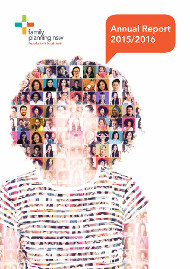 The Annual Report is a comprehensive record of our work over the financial year 2015-2016, providing our valued stakeholders, partners and the community with information about the reach and depth of our programs and services. In this our 90th year, Family Planning NSW prides itself on continuing to focus on providing the very best services and supports to all people across NSW. We continue to develop and implement new clinical services and methods of service delivery to meet community need. We have extended the range and reach of professional education. Equally importantly, we have increased the evidence in relation to reproductive and sexual health, to inform both our clinical and education services. Our International Development program in the Pacific continues in partnership with local service providers to focus on communities with very poor reproductive and sexual health. Very challenging and rewarding! The Annual Report is a comprehensive record of our work over the financial year 2015-2016, providing our valued stakeholders, partners and the community with information about the reach and depth of our programs and services. In this our 90th year, Family Planning NSW prides itself on continuing to focus on providing the very best services and supports to all people across NSW. We continue to develop and implement new clinical services and methods of service delivery to meet community need. We have extended the range and reach of professional education. Equally importantly, we have increased the evidence in relation to reproductive and sexual health, to inform both our clinical and education services. Our International Development program in the Pacific continues in partnership with local service providers to focus on communities with very poor reproductive and sexual health. Very challenging and rewarding!
During the 2015-2016 financial year we provided 30,986 clinical consultations to 15,716 clients. Our Education service provided 90 formal training courses to 1,217 participants while 16,053 clients attended community education activities.
Internationally, Family Planning NSW’s work reached 19,016 direct beneficiaries from Papua New Guinea, Timor Leste, Solomon Islands and Vanuatu.
|
|
6 November 2016
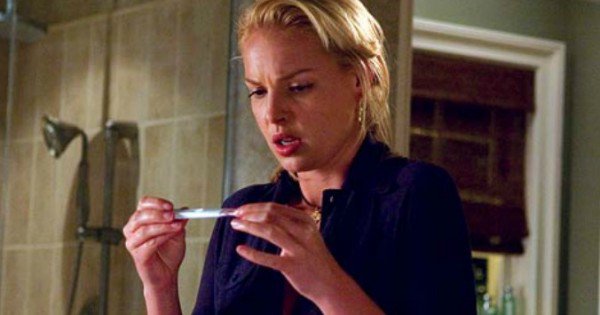
Last week, the news that detox teas could interfere with the contraceptive Pill - and potentially result in an unplanned pregnancy - came as a shock to many of us.
It was an all-too-real reminder that falling pregnant while taking the Pill can happen, although thankfully it’s relatively uncommon. According to Family Planning NSW, the combined Pill is 99.7 per cent accurate with perfect use — perfect being the operative word here.
|
|
28 October 2016
A study recently published in JAMA Psychiatry linking hormonal contraception with depression has provoked a lot of media interest and may raise questions from our patients. This summary provides an overview of the study and its implications so we can support informed decision-making in relation to contraceptive choices.
|
|
20 October 2016
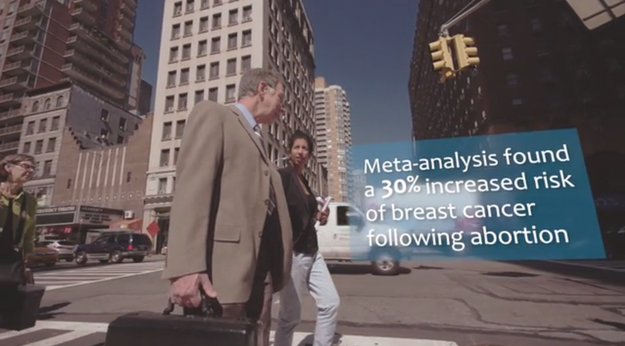 The World Health Organisation disagrees. The World Health Organisation disagrees.
Anti-abortion documentary Hush, which shows a purported link between abortion and an increased chance of developing breast cancer, will be screened at a fundraiser for Women’s Forum Australia, “an independent women’s think-tank”, in Melbourne.
|
|
12 October 2016

Since it took the world by storm in the sixties, Australian women have embraced the pill.
We were the second nation in the world to have access to this revolutionary tablet and up to 80 per cent of Australian women will use it at some point in their lives.
|
|
12 October 2016
Family Planning NSW is hosting a forum for parents and carers of people with intellectual disability of all ages to address sexuality issues across the lifespan including childhood, adolescence and adulthood. The forum will include presentations and workshops on disability and sexuality, preparing for puberty, relationships and dating and tips for talking about sex and answering tricky questions.
|
|
7 October 2016

There's a lot to like about the pill – it stops unwanted pregnancies, it allows you to skip your period and in many cases, you won't notice any difference to your body or brain.
|


 In her Sydney Morning Herald article, Dr Deborah Bateson - Medical Director of Family Planning NSW - weighs in on the imminent changes to the National Cervical Screening Program.
In her Sydney Morning Herald article, Dr Deborah Bateson - Medical Director of Family Planning NSW - weighs in on the imminent changes to the National Cervical Screening Program.






